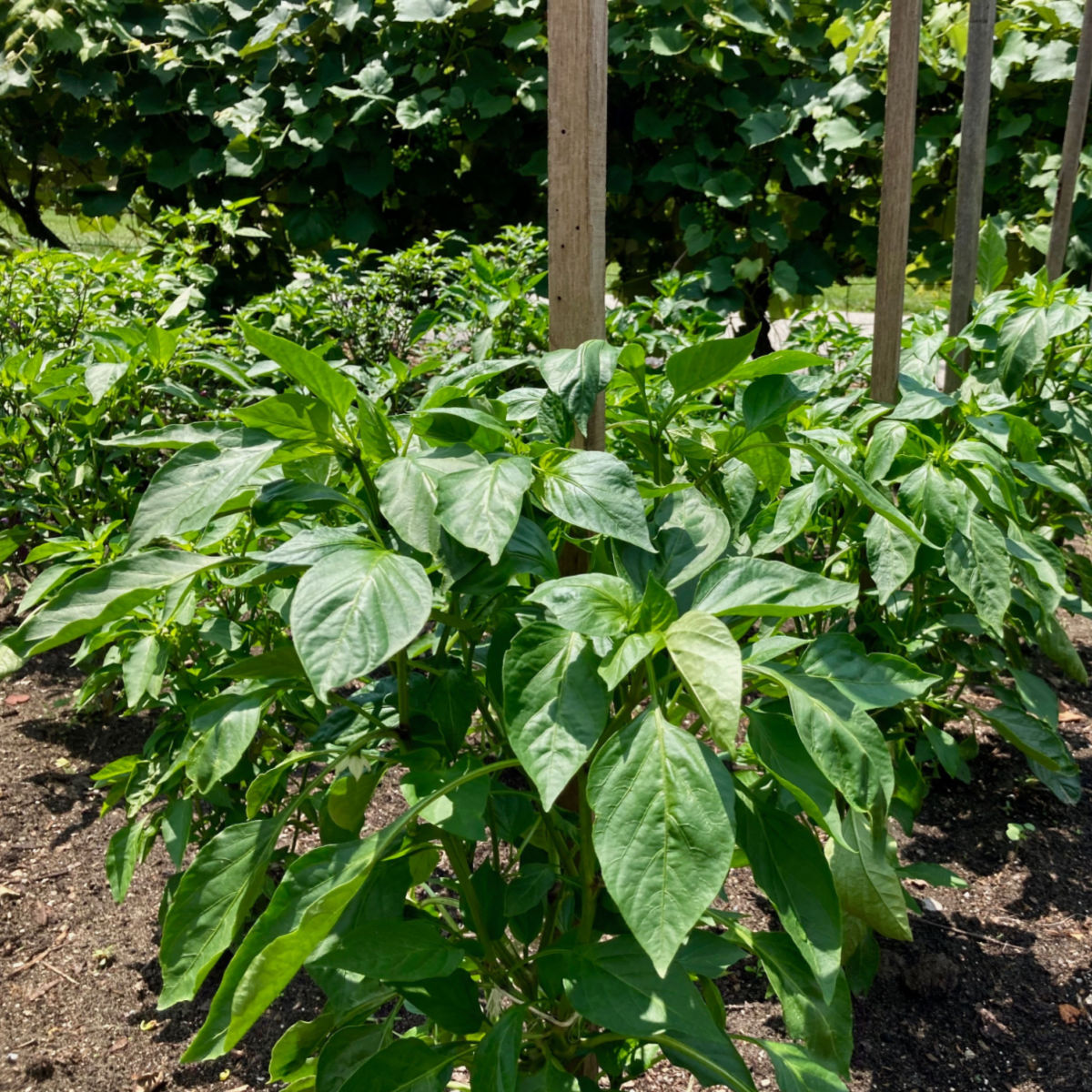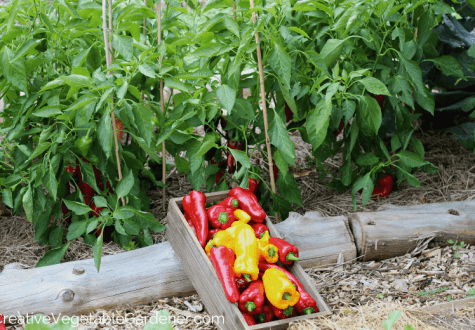Best Fertilizers for Peppers: Boost Growth and Taste Naturally
Best Fertilizers for Peppers: Boost Growth and Taste Naturally
Blog Article
Organic Vs. Synthetic Fertilizers: Which Is Best for Supporting Healthy Pepper Plants?
In the realm of supporting healthy pepper plants, the choice in between artificial and natural fertilizers stands as a critical choice with significant effects. While both options aim to provide important nutrients to support plant development, the nuances of their impact on the dirt, plant health and wellness, and the environment stimulate a dispute that echoes throughout the horticulture neighborhood. Understanding the unique advantages and potential challenges of each plant food type is important for pepper cultivators looking for to enhance their yields while preserving a sustainable and eco-conscious method.
Advantages of Organic Fertilizers
Organic plant foods offer an environmentally-friendly and sustainable approach to beneficial pepper plants, offering important nutrients without using artificial chemicals. These all-natural fertilizers are stemmed from organic resources such as compost, manure, bone dish, and algae, advertising soil health and biodiversity. Unlike synthetic plant foods, organic choices launch nutrients slowly, making sure a consistent and balanced supply for pepper plants to prosper.
One significant advantage of organic plant foods is their ability to enhance dirt framework and water retention. By improving dirt health and wellness, natural fertilizers advertise advantageous microbial task, which aids in nutrient uptake by pepper plants. Furthermore, natural plant foods reduce the danger of chemical run-off, securing water resources from contamination and safeguarding the atmosphere.
In addition, natural fertilizers add to long-lasting dirt fertility by promoting the development of beneficial soil microorganisms. These organisms aid break down organic matter, releasing nutrients in a type that is conveniently obtainable to pepper plants. best fertilizers for peppers. By fostering a healthy and balanced dirt ecosystem, organic plant foods support sustainable pepper cultivation practices that benefit both plants and the environment
Downsides of Artificial Fertilizers
Artificial fertilizers, in contrast to their organic counterparts, pose various downsides when made use of to nurture pepper plants, influencing both plant wellness and ecological sustainability. One significant drawback of artificial fertilizers is their propensity to leach nutrients from the dirt swiftly.
Additionally, the overuse of synthetic fertilizers can contribute to water air pollution. Excess fertilizers not taken in by plants can wash away into water bodies, leading to eutrophication, where algae blossoms deplete oxygen levels in the water, hurting water life. Moreover, synthetic plant foods are commonly originated from non-renewable sources, such as fossil fuels, adding to carbon emissions and environmental deterioration during their manufacturing.
Nutrient Absorption Comparison
Reliable nutrient absorption plays an essential duty in the overall health and wellness and development of pepper plants. When comparing synthetic and organic plant foods in terms of nutrient absorption, organic fertilizers have the benefit of providing a much more well balanced and slow-release resource of nutrients (best fertilizers for peppers). Organic fertilizers consist of a selection of macro and micronutrients that are not only helpful for the plants but likewise advertise healthy soil microbial task, which aids in nutrient uptake. On the various other hand, artificial plant foods often offer a fast release of nutrients, which can cause seeping and runoff, resulting in reduced nutrient absorption prices by the plants.
Furthermore, organic fertilizers improve soil structure and water retention capacity, allowing pepper plants to access nutrients more efficiently. This improved soil quality facilitates root advancement, allowing better nutrient absorption. Synthetic fertilizers, although originally enhancing plant development as a result of their high nutrient focus, may hinder long-term nutrient absorption by derogatory dirt health and wellness gradually.
Environmental Impact Considerations

On the other hand, synthetic plant foods, although frequently even more focused and instantly readily available to plants, can have harmful results on the atmosphere if not applied properly (best fertilizers for news peppers). Their manufacturing requires high power inputs, leading to greenhouse gas discharges and contributing to climate adjustment. Additionally, the drainage of excess synthetic plant foods can contaminate water resources, leading to eutrophication and hurting aquatic environments.
Ideal Fertilizer Practices for Peppers
To achieve this, it is necessary to adhere to finest plant food methods tailored to the certain needs of pepper plants. One important technique is to perform a dirt test prior to applying any plant foods.
One more essential practice is to fertilize pepper plants at the correct time. Commonly, peppers gain from obtaining fertilizer at planting and afterwards again when they start to flower. Over-fertilizing can cause vitamins and mineral imbalances and damage the plants, so it is crucial to comply with advised application prices.
Additionally, picking a balanced plant food with an NPK ratio that fits pepper plants' needs is essential. Inevitably, integrating artificial and natural fertilizers sensibly can aid nurture healthy pepper plants while decreasing environmental effect.
Conclusion

Organic fertilizers supply an environmentally-friendly and sustainable strategy to beneficial pepper plants, supplying important nutrients without the use of artificial chemicals. Unlike artificial plant foods, organic special info choices launch nutrients gradually, ensuring a consistent and well balanced supply for pepper plants to flourish.
Artificial plant foods, in contrast to their natural equivalents, pose different negative aspects when used to nourish pepper plants, affecting both plant health and wellness and ecological sustainability. When contrasting organic and artificial fertilizers in terms of nutrient absorption, natural plant foods have the benefit of supplying an extra balanced and slow-release resource of nutrients.Moreover, natural plant foods boost dirt framework and water retention ability, enabling pepper plants to accessibility nutrients much more successfully.
Report this page